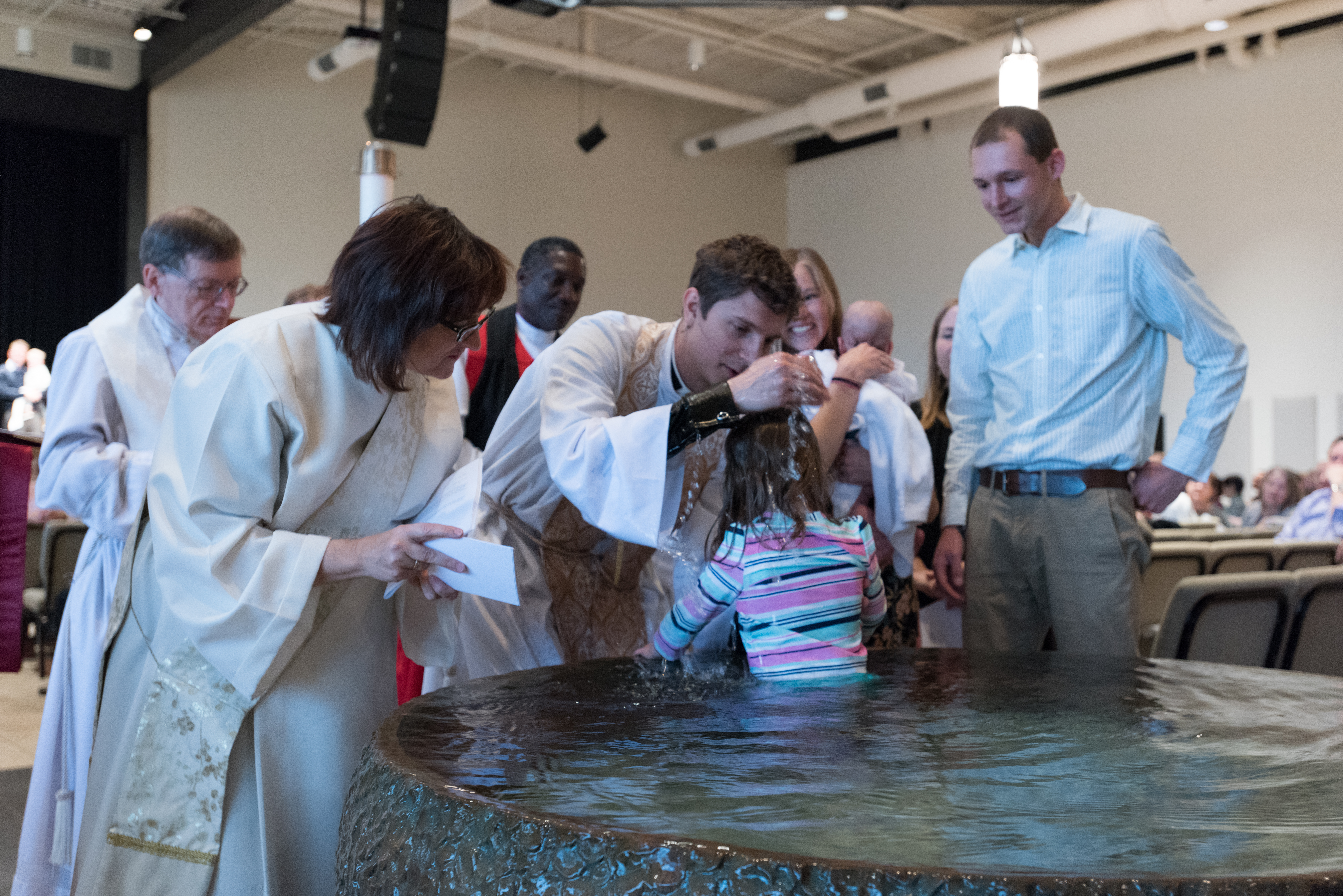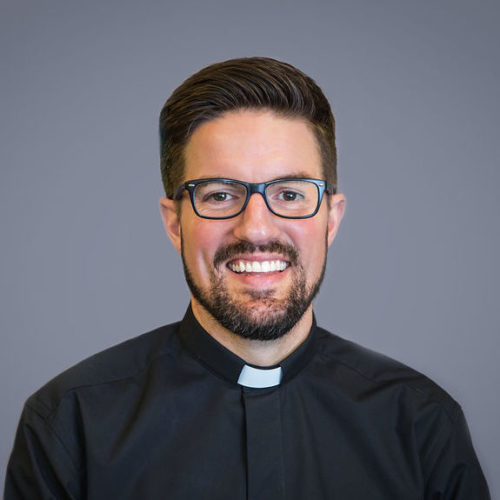All Saints Sunday is coming up this week! But wait—what is All Saints?
To answer that question, I [Christiana] caught up with Fr. Steve, our Sr. Executive Pastor who helms our worship ministry here at Resurrection.
I asked him all the questions you’ve probably asked at some point—including “What’s with the GIANT candle?” Read on to find out!
Christiana: Alright, let’s start with the obvious: What is All Saints?
Fr. Steve: All Saints is one of the seven principal feast days of the church. All Saints Day is a fixed feast day that happens on November 1 every year. We celebrate All Saints as a church on the Sunday that comes afterward—in this case, November 3. That day is called “All Saints Sunday.”
Christiana: Okay, so I should probably back up—what is a “feast day?”
Fr. Steve: Feast days are special celebrations in the church where we mark something important. People tend to be most familiar with ones that have made their way into popular culture—Christmas and Easter are actually church feast days in the church calendar.
Christiana: That raises the question of the church calendar—which I know we don’t even have time to dig into all of it here, but do you want to give us a quick explanation of what it is and where it comes from?
Fr. Steve: Sure, well—this may seem like a detour, but it will make sense—you have to remember that many of the first Christians were Jewish. After all, Jesus was a Jewish man, and his ministry started in Israel.
Now, Judaism has a religious calendar. Beyond the weekly Sabbath, their year is organized around three feasts: Passover, Pentecost, and Tabernacles. Each of these celebrated essential events in their life together with God; for example, Passover celebrated their exodus from Egypt and entry into the Promised Land.
After Jesus ascended to heaven, the early Christians continued in this practice of organizing their weeks and years around their faith. For example, they marked their weeks with the celebration and eating of Holy Communion, just as the Jews celebrate a Sabbath meal at the end of their week.
They also began setting aside special days and times throughout the year to mark special events in the story of their faith. As Christianity spread and grew, the calendar of feasting and fasting also grew and changed.
So, kind of skipping over a lot of history—sorry, Canon Stephen!—the church today celebrates seven primary feast days, of which All Saints is one.
Christiana: Where are these feast days found?
Fr. Steve: These feast days are all set down in our Book of Common Prayer. The others are Easter, Ascension, Pentecost, Trinity, Christmas Day, and the Epiphany.
Christiana: Okay, so what does All Saints celebrate?
Fr. Steve: Well, it’s in the name: we celebrate all of the saints! [Laughs] But of course, that can be a little confusing because of what people think the word “saint” means. In the New Testament, the word ‘saint’ is applied to all baptized Christians.
All Saints is essentially a celebration of the entire body of Christ throughout all time. We remember both those who have come before us—and whom we believe are with us in spirit, that “cloud of witnesses” that Hebrews tells us of—and exhort those who are on earth worshiping together now.
Christiana: Where did All Saints come from?
Fr. Steve: Well, as Christianity spread, it became common to set aside a special day to commemorate the life of a particular believer. These began to proliferate, and so in the 1549 Prayer Book, the church moved to retain only the saints’ days of those people mentioned in the New Testament (such as Mary, or Stephen), as well as this one principal feast of All Saints.
All Saints is a celebration of the entire body of Christ throughout all time. We remember both those who have come before us and exhort those who are on earth worshiping together now.
—Fr. Steve Williamson Tweet
Christiana: What’s special about All Saints?
Fr. Steve: Perhaps most importantly, it’s one of the days set aside for baptism. The Prayer Book recommends that baptisms be reserved, so far as possible, for five traditional occasions which emphasize the meaning of baptism:
- Easter Vigil, which signifies baptism as death and resurrection
- Pentecost signifies baptism as the receiving of the Holy Spirit;
- Baptism of Our Lord, which signifies baptism as the reception into the communion of saints;
- All Saints’ Day, signifying baptism as the reception into the communion of saints;
- The time of visitation of the bishop, which signifies baptism as the reception into the holy catholic church.
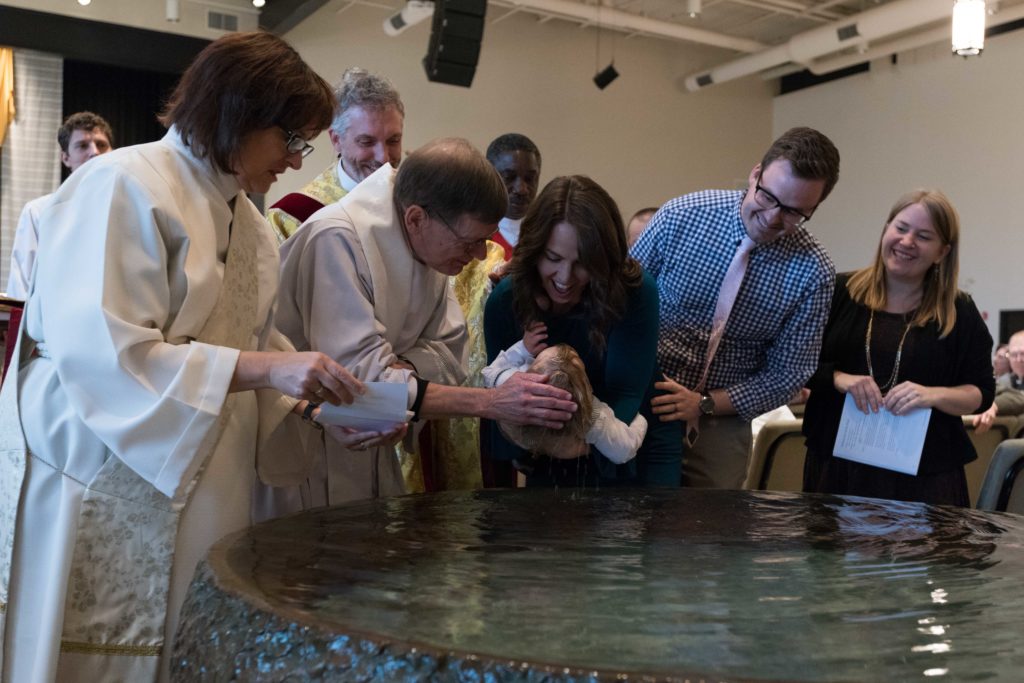
Christiana: I never knew that. What else happens on All Saints?
Fr. Steve: Well, as a feast day, the liturgical color—the color you see our robed leaders wear, and other decorative elements in the service—changes to white and gold just for that day. The white represents light, purity, joy, triumph, and glory. Gold represents joy as well.
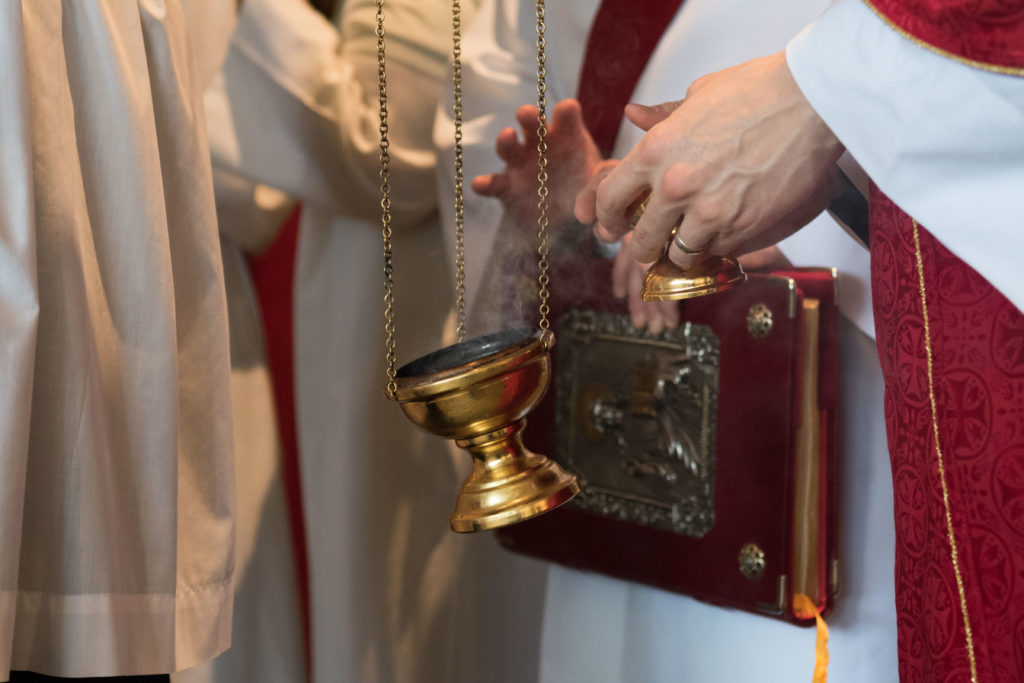
Fr. Steve: [Laughs] That’s the paschal candle! It symbolizes the resurrected Christ and, each year, is lit with “new fire”—ooh, remind me, we should talk about that sometime—as part of the Easter Vigil. At a baptism service, it reminds us all of the new life in Christ that we receive in baptism.
Christiana: Okay—so why does the priest dip it in the water?
Fr. Steve: As we’re often reminded at Resurrection, matter matters. God works through the ordinary stuff of life, even wax and water. The candle represents Christ, risen in the power of the Holy Spirit. When the priest blesses the water with the paschal candle, he’s praying for the light and power of the resurrection, symbolized by the candle, to fill all those baptized in the water. It’s right there in the prayer: “May all who are baptized here be cleansed from sin, be born again, and continue for ever faithful in the risen life of Jesus Christ our Savior.”
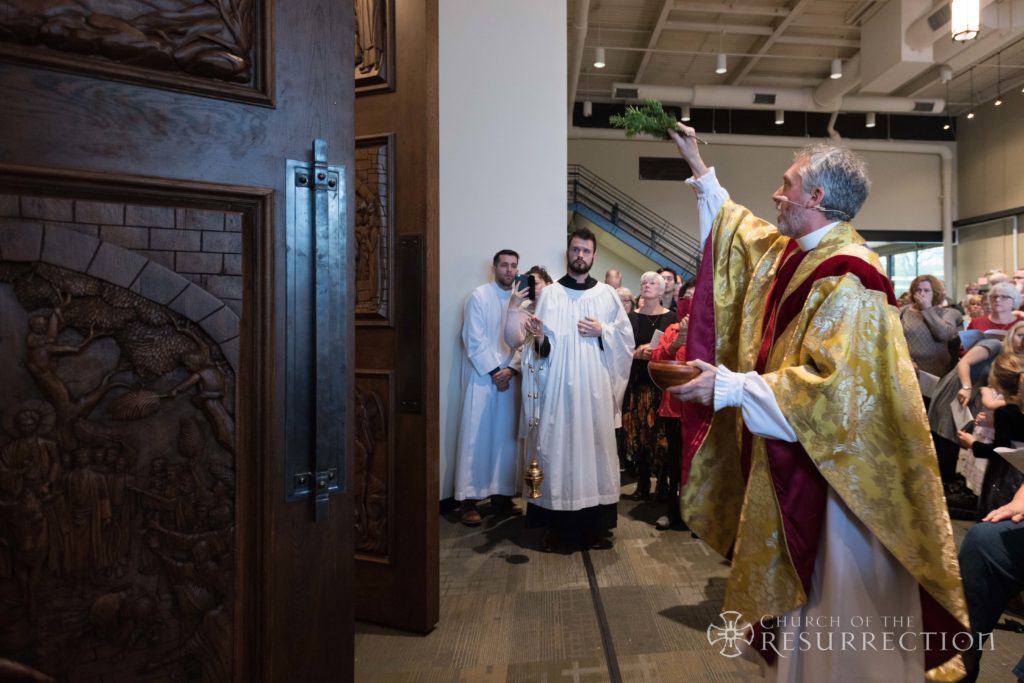
Preparing for All Saints
Scripture for All Saints 2019: Revelation 7:9-17, Psalm 149, Matthew 5:1-12 or Luke 6:20-26
Prayer (collect) of the day: Almighty God, you have knit together your elect in one communion and fellowship in the mystical Body of your Son; Give us grace so to follow your blessed saints in all virtuous and godly living, that we may come to those ineffable joys that you have prepared for those who truly love you; through Jesus Christ out Lord, who with you and the Holy Spirit lives and reigns, one God, in glory everlasting. Amen. (ACNA Book of Common Prayer, 2019)
Priest’s prayer before eucharist (Called a proper preface): For in the multitude of your saints, you have surrounded us with so great a cloud of witnesses that we, rejoicing in their fellowship, may run with patience the race that is set before us, and together with them, may receive the unfading crown of glory. (ACNA Book of Common Prayer, 2019)
Hey there! Got more questions about Anglicanism?
Subscribe to our email list and never miss a post:

